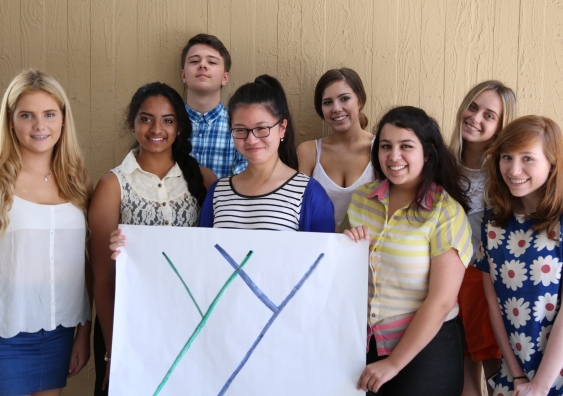Sydney teens with a social conscience show entrepreneurial flair
A group of young budding entrepreneurs was asked how they would improve the wellbeing of poor and marginalised communities. Their answers were surprising.
A group of young budding entrepreneurs was asked how they would improve the wellbeing of poor and marginalised communities. Their answers were surprising.

How would you improve the wellbeing of poor and marginalised communities in a sustainable way? This was the question posed recently to a group of budding teenage entrepreneurs with a social conscience. Their answers were surprising.
The eight students, selected from scores of applicants at high schools across Sydney and all sharing a passion to improve global health, were at UNSW to take part in Yunus Week, an initiative of UNSW’s School of Public Health and Community Medicine.
The week followed the launch of the UNSW Yunus Social Business Health Hub earlier this year, named in honour of Nobel Peace Laureate Muhammad Yunus who urged young Australians in a video address to use their creativity to make a difference in the world.
The UNSW Hub, a first for an Australian university, will see UNSW researchers collaborate to develop social business enterprises to improve the health of disadvantaged and marginalised communities. It is part of a global network of university-based Yunus Social Business Centres.
Professor Raina Macintyre, Head of the School of Public Health and Community Medicine, said the aim of Yunus Week was to introduce the concept of social enterprise to some of Sydney’s brightest youth.
“We know many young people have a social conscience and huge potential to come up with innovative health-related social business ideas,” she said.
The concept of social business involves viewing the world through the lens of ‘social gain’ rather than simply striving to maximise profits.
After receiving lectures from leading public health experts and a crash course in social business planning courtesy of the Grameen Bank, the aspiring entrepreneurs formed groups that were linked with a UNSW mentor and given five days to develop their big ideas.
The conclusion of the week saw the four groups present their ideas to a panel of experts.
A social supermarket to train and employ homeless people in western Sydney was judged to be the standout business idea. The idea was created by Aashna Khanna from Penrith Academically Selective High School and Tiffany Williams from SCECGS Redlands.
They proposed purchasing remaindered products and employing homeless youth to sell the goods at a reduced cost to disadvantaged people living in the community.
Other ideas generated by the students included:
One of the mentors assigned to the group, UNSW senior lecturer and research fellow in ageing and mental health Dr Adrienne Withall, said working with the students was inspiring. "They were a group with diverse interests, and they all had such great spirit and a wonderful desire to help people who are less fortunate.
“These kinds of sustainable programs that can be established through crowdsourcing to effect social change are becoming increasingly popular with this younger generation,” she said.